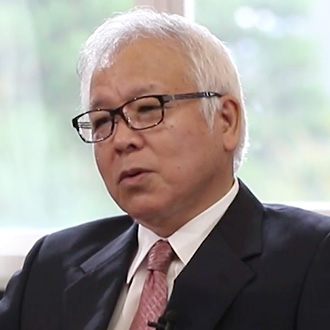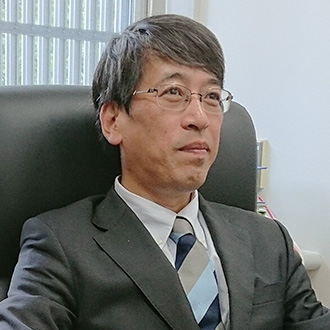Messages
Shinji Asonuma
At this point in the 21st century, we face numerous global issues including the rapid increase in the world’s population and significant depletion of natural resources that present major challenges to the sustainable development of our society. In this context, there is great demand for a transition from a mass production–mass consumption economy to a recycling-based economy that uses our limited resources and energy efficiently. Owing to the high expectations for renewable energy, the development of innovative rechargeable batteries that support such a future society is the focus of global research efforts.
I hope that this battery research project, featuring collaboration between industry, government, and academia in an all-Japanese context, can provide guidance for solving the world’s energy problems, especially in Japan, a country that has few natural resources and is expected to transform into a super-aging society sooner than any other developed country.
To ensure the success of the project, Kyoto University will promote the research and development effort together with other participating institutions. I sincerely hope that this effort will bear fruit and create a foundation for human development that heralds the beginning of the Reiwa era.

Dr. Takeshi Abe, Project Leader
Aiming for a better and more sustainable future for our society, the Sustainable Development Goals (SDGs) set 17 objectives to be achieved by 2030. To accomplish these SDGs, large-scale introduction of renewable energy and high efficiency in energy use are essential. Energy storage using rechargeable batteries is an effective means of achieving these goals. Rechargeable batteries have been widely used not only for portable devices, but also for electric vehicles (EVs) in recent years. The joint research program between the New Energy and Industrial Technology Development Organization (NEDO), Kyoto University, and the Kansai Center of the National Institute of Advanced Industrial Science and Technology (AIST) commenced in 2009, and involved the cooperation of numerous companies and research institutions. During the Research and Development Initiative for Scientific Innovation of New Generation Batteries (RISING) project, we shifted the research style for developing batteries from the conventional trial-and-error method to the “Begin with Basics” method. That is, we focused on developing innovative rechargeable batteries that go beyond lithium-ion batteries by reconsidering key principles and using advanced analytical techniques, such as synchrotron radiation and neutron beams.
Based on the outstanding success of the RISING project, we commenced the second phase, the RISING2 (Research and Development Initiative for Scientific Innovation of New Generation Batteries 2) project in 2016, to develop innovative rechargeable batteries involving four battery systems based on both anion and cation shuttles as charge compensation species. Founded by NEDO, the project is an all-Japan cooperation including 10 private corporations, two public research institutes and 21 universities, centered in Kyoto University and the Kansai Center of the AIST. Since the discovery of the first electrochemical cell (battery) by Volta in 1800, four types of rechargeable batteries have been developed and implemented on a large scale. In Japanese chronology, the lead–acid battery was developed in the late Edo period, the nickel–cadmium battery in the Meiji era, and the nickel-metal hydride and lithium-ion batteries in the Heisei era. The RISING2 project will continue to vigorously pursue research and development aimed at utilizing the fifth type of rechargeable battery as a source of power for electric vehicles in the new Reiwa era. We greatly appreciate your continuing cooperation and support.

